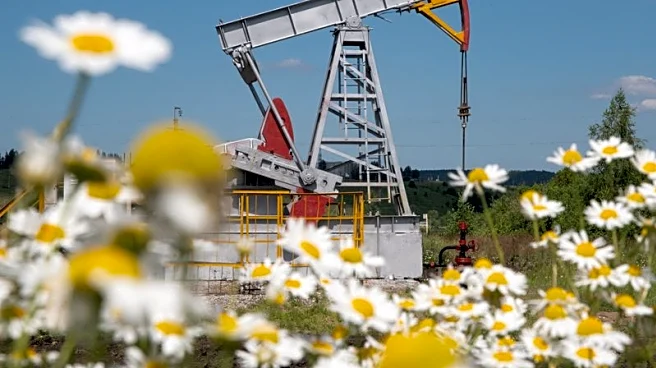Rapid Read • 8 min read
The Alpine region, historically perceived as a barrier between Italy and northern Europe, has evolved into a cultural bridge and living space. Initially seen as a dividing wall, the Alps have been recognized for their role in connecting various European regions. This transformation is attributed to advancements in transportation and increased transit traffic. The Alps have also been a focal point for religious and linguistic developments, serving as a border zone during the Reformation. The region's cultural significance is highlighted by its growing population, which has increased from 3.1 million in 1500 to 13.9 million in 2000.
AD
The Alpine region's evolution from a barrier to a connector has significant implications for European integration and cultural exchange. Its role as a transit region has facilitated economic and social interactions across Europe. The historical religious conflicts and linguistic diversity within the Alps underscore its importance as a cultural and political entity. The region's growing population reflects its increasing relevance as a living space, contributing to the preservation of European heritage and cultural identity.
Future developments in the Alpine region may focus on enhancing its role as a cultural and economic hub. Efforts to promote sustainable development and environmental protection are likely to continue, given the region's ecological significance. The Alpine Convention, established in 1991, may play a crucial role in shaping policies that address the unique challenges faced by the region. Additionally, the Alps' cultural and historical significance may drive initiatives aimed at preserving its heritage and fostering cross-border cooperation.
The Alpine region's transformation highlights broader themes of regionalism and identity in Europe. The Alps serve as a microcosm of the continent's historical and cultural dynamics, illustrating the interplay between geography, politics, and culture. The region's linguistic diversity and religious history offer insights into the complexities of European identity formation. As a living space, the Alps exemplify the challenges and opportunities associated with balancing cultural preservation and modern development.
AD
More Stories You Might Enjoy













